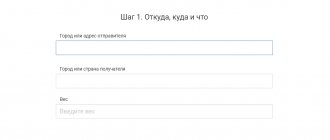Stores strive to sell as much as possible, and buyers strive to buy as cheaply as possible. Promotions are the most favorite event for both parties. Can I exchange or return an item purchased at a discount? We will tell you what sellers are silent about.
Important! If you yourself are sorting out your case related to the return of discounted goods, then you should remember that:
- All cases involving consumer fraud are unique and individual.
- Understanding the basics of the law is useful, but does not guarantee results.
- The possibility of a positive outcome depends on many factors.
What are shares?
And the sellers unanimously convince that the promotional item cannot be returned or exchanged. Moreover, some indicate this in advertising videos, advertisements on stands, in price tags and even on cash register or sales receipts. But what does the law on the protection of consumer rights (hereinafter referred to as the Law) say about the return of goods under promotion? This main document on the consumer side says absolutely nothing about the stock. Moreover, it indicates that the terms of the contract (in our case, the purchase of an item) that infringe on the rights of the consumer are declared invalid.
However, sellers use essentially legal methods and simply hide their legal rights from the buyer. Let’s figure out what is actually meant by the big word “Promotion”. These events are of two types:
- sale - sale at a discount of goods of good quality;
- sale of discounted goods - sale at a discount of goods of inadequate quality.
Let's consider the possibilities of returning goods purchased under each of these promotions in 2021.
Promotion
Most traders, due to their professional activities, are well acquainted with the concept of “stock”. Depending on the type of product, different approaches to setting discounts are used .
There can be many reasons for this, for example, a more modern update to the product line has appeared and, accordingly, the amount of demand for the existing supply has decreased.
The most effective way to interest a buyer is to offer a promotional price on a product that is popular with the target audience.
Modern computer gadgets and consumer electronics, clothing and shoes are gradually going out of fashion, giving way to new models.
The buyer has less demand for them, and so that the goods do not gather dust in the warehouse, and the entrepreneur receives his benefit, the sales process should be quickly organized by organizing a sale at a reduced price.
True, this method does not contribute to making a profit and even vice versa, but the seller needs to return the money spent, although not in full.
Perhaps the company did not calculate market opportunities, purchasing a large number of products that could not be sold quickly. Leaving a product gathering dust in a warehouse or throwing it away is not the best choice, so people’s interest is spurred by a promotional offer.
Often, a promotion helps not only stimulate consumer demand, but also leads to profit due to the creation of parallel offers.
For example, a supermarket chain has a list of regular customers who are offered various accumulative systems in the form of points, so that they can later be converted into a certain discount.
Also, a retail outlet can introduce and advertise a new product; products are delivered to the store with the expectation of a certain consumer contingent.
Potential customers become more interested when visiting a supermarket; they leave a little more money there than before the special offer and promotion.
Restrictions on buyer rights
There are situations when sellers take advantage of the ignorance of buyers and establish rules that do not allow consumers to return or exchange goods purchased on sale.
Although the merchant has the right to establish promotions and discounts, he does not have the right to violate the Law of the Russian Federation “On the Protection of Consumer Rights” No. 2300-1 of 02/07/1992.
Can I return a promotional item within 14 days? If a consumer purchased a product at a discount or promotional item, but it did not suit him for some reason (the shape, size, color did not suit him), then, according to Art. 25 of the Law of the Russian Federation, the buyer can return to the store to replace non-food products within 14 days.
The day on which the purchase took place is not taken into account; the countdown starts from the next day.
The law does not provide restrictions on the procedure for returning or exchanging goods purchased at a promotion or discount in 2021. Therefore, if the product does not suit you, you have every right to return it to the dealer within the specified time frame.
There are some clarifications regarding the condition and return of promotional goods of proper quality . Of course, it is necessary to maintain the proper condition of the product and its presentation.
The product must not have traces of use, torn off brand labels or factory seals. You should also save cash receipts confirming the process of purchasing the product for the promotion.
True, the absence of a sales document does not limit you from challenging the right to return products, having witness testimony, but this will help save you from wasting time and unnecessary hassle.
It happens that an entrepreneur does not have a similar product, and he cannot exchange the product for you on the day you complained to him.
You should know that in this situation you have legal grounds to terminate the purchase and sale agreement and demand a refund of the money spent on the purchase.
The trade worker is obliged to pay the buyer in full within 3 days.
You can also draw up an agreement with the seller in order to make an exchange for the same product when he has it. On the day the product arrives, the merchant is obliged to notify the consumer about the availability of the product in the store.
There is a list of goods that are sold on promotion, but they are not subject to the return law.
The list of products is specified in Decree of the Government of the Russian Federation No. 55 dated January 19, 1998. These include:
- Jewelry;
- medications;
- underwear and personal care products;
- complex technical equipment.
Returning items purchased on sale
The law does not set any special conditions for the exchange and return of sale items. This means that everything happens according to the general rules, as when returning and exchanging goods purchased without a discount.
Return of quality auction item
A non-food product of good quality, which was purchased at a discount, can be exchanged for a similar one. In this case, you should refer to the fact that the product does not fit in shape, dimensions, style or color, size or configuration. Such an exchange can be made within 14 days. The period starts counting from the next day after purchase.
Note!
Returns and exchanges of goods from sale are possible if the item has not been used, its presentation and consumer properties are preserved, and seals and factory labels are present.
The presence of a sales or cash receipt confirming payment is not a prerequisite for a return. Witnesses can confirm that the item returned for exchange was purchased on sale from a specific seller. However, such evidence is still quite shaky. Before contacting the seller, you should consult with a lawyer so that he can assess your strengths and weaknesses in the current situation.
There is a list of goods that the seller is not obliged to change if the goods were of proper quality at the time the buyer received them. The list includes:
- medicines, perfumes, personal hygiene items;
- linen and textile products;
- household chemicals;
- furniture sets;
- jewelry;
- animals and plants;
- books.
If the seller has nothing to exchange (which is quite possible, because there was a sale), then the buyer has the right to demand his money back. They must be returned within three days from the date of return of the promotional purchase.
Note!
The law does not oblige sellers to accept food products for return if they met quality requirements at the time of purchase.
Return of low-quality promotional goods
If defects are discovered in a product purchased at a discount sale that the seller did not warn about, the buyer has the right to choose:
- refuse the deal and demand a refund of the money paid. In this case, the seller may demand the return of goods purchased at the sale;
- request a replacement product. This may be a product of the same model, brand or similar (with price recalculation);
- demand a reduction in the purchase price for the goods, given the lack of ideal quality;
- demand the elimination of defects in the goods (free of charge and immediate) or reimbursement of costs for their correction.
Note!
The consumer has the right to demand full compensation for losses that he incurred due to the sale of low-quality goods.
The situation is different with technically complex products:
- mechanical, electronic-mechanical and electronic wrist and pocket watches;
- digital photo and video cameras, lenses for them and optical photo and film equipment with a digital control unit;
- satellite TV sets, game consoles with a digital control unit;
- system units, computers, laser and inkjet MFPs, monitors with a digital control unit;
- refrigerators and freezers, washing machines and dishwashers, coffee machines, air conditioners;
- cars and scooters, tractors and motor cultivators;
- snowmobiles and boats.
If one of these items was purchased at a sale, you can request a refund or replacement of the item within 15 days from the date of purchase if:
- the sale item has significant flaws;
- the deadlines given for eliminating product defects were violated;
- the inability to use the product for a long period due to repeated elimination of its various shortcomings.
If you miss this deadline, you can return a promotional product of poor quality, but it will be more difficult to do so. The seller is obliged to accept goods of inadequate quality and, if necessary, carry out an inspection. The absence of a document confirming payment for goods purchased at a sale cannot be grounds for refusal to fulfill the requirements.
Note!
If you find deficiencies in food products, perfumes, or household chemicals that were purchased at a discount, you can request a replacement with a quality product or a reduction in the purchase price.
When the seller is obliged to accept the goods back
In a regular store
In a store, shopping center and market, the buyer sees the product, can try it on and evaluate it. He himself is responsible for the choice. Therefore, the conditions for exchange and return are gentle for the seller - Art. 25 of the Law.
General rule: the seller is obliged to exchange a non-food product if it does not suit the buyer. A non-food product is any product that cannot be eaten: clothing, shoes, furniture, spare parts. Read about exceptions in the section “When the seller has no obligation to accept the goods.”
Exchange is required only if the product is not suitable. The law does not mention other reasons for return. Technically, if a buyer returns a dress because she changed her mind or because her husband is against it, the seller can refuse. In practice, they rarely find fault with the reasons for the return. The buyer can always “remember” that the product is not only too expensive, but also the wrong size.
Money is returned only if the store does not have a suitable item for exchange. Again, the buyer can always demand a dress the color of Daenerys's eyes with dragons on the sleeves - and get money.
The buyer should not be forced to wait until the shoes of the right color arrive from the supplier. If the buyer agrees, you can “reserve” the item: sign an agreement that the store will exchange the item as soon as a new batch is delivered.
The rules cannot be changed in the terms of the promotion or in the agreement. Even when a buyer knows they are purchasing a unique, handmade or one-of-a-kind item, the right to exchange and return still applies.
The period for returning goods to the store: 14 days, not counting the day of purchase.
Deadline for returning money to the buyer: 3 days after returning the goods.
In the online store
Things from online stores and magazines with product catalogs are always unpredictable. Even rotating 3D photos don't help much. You can’t try on clothes, you can’t touch fabrics, you can’t sit on a chair and open closet drawers. Therefore, the conditions for returning remote purchases are stricter. A separate article 26.1 of the Law on Consumer Rights is devoted to them.
General rule: the buyer has the right to cancel the order at any time before delivery and within seven days after. It is not necessary to explain the reason. Tell the buyer in writing how to return the goods - or the period will increase to three months. The rule applies to all goods without exception. The list of “non-returnable goods” does not apply - as stated in the Letter of Rospotrebnadzor dated October 7, 2016 No. 01/13541-16-29.
When returning, the seller is not required to pay for shipping. You can deduct its cost from the refund amount.
Deadline for returning money to the buyer: ten days from the date of application.
Return of discounted goods
The situation is different with the return of goods purchased at a discount due to markdown. We are talking about a product that has defects or significant intangible defects. The seller does not hide the fact that the promotion offers the purchase of a product that does not meet the standard. According to the Law, if the defects of a product were agreed upon between the seller and the buyer, then it is no longer possible to return such a product, citing these defects. For example, if you purchased a laptop with a sticking key and were warned about it, then there is no point in making claims about this in the future. But not everything is so hopeless. Sellers, trying to impose discounted goods on the buyer, often make mistakes. In some cases, a return of discounted goods is possible. These are situations when:
- the seller only verbally reported the defect and there is no evidence that he actually did it. Accordingly, the buyer can declare that he was not notified of anything specific regarding the presence of a defect in the product. An indication that a product is marked down does not indicate that the product is necessarily of poor quality. For example, a product may be discounted due to the emergence of a new similar product model (smartphone, clothing collection, etc.);
- the defects of the discounted goods were agreed upon and even documented, but another defect emerged that the buyer was not warned about. In this case, the provisions of the Law come into force allowing the return or exchange of goods. For example, when purchasing a phone, the buyer was warned that his headphone jack was broken, but later it turned out that the phone's charger jack was not working. In this case, the product can be returned.
Note!
If you buy a product at a discount, as indicated in the documents attached to the product, do not be lazy to describe in detail the types of defects. In the future, this will protect you from lengthy disputes with the seller regarding the return of goods if an unspecified defect is detected.





